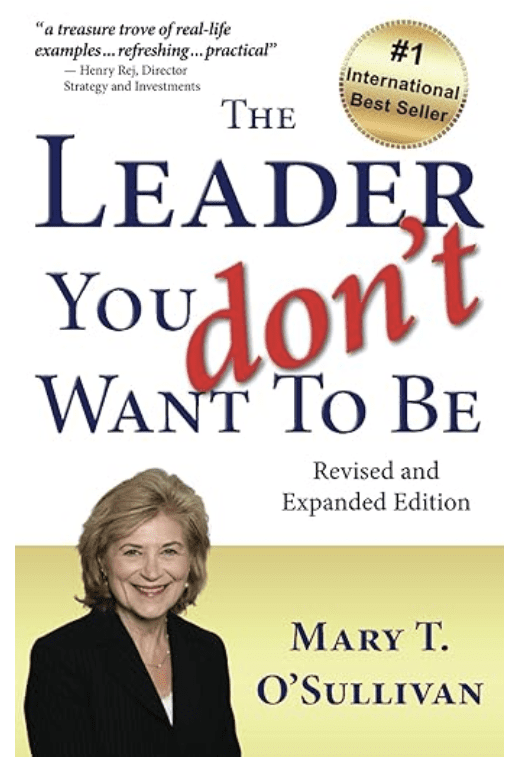Search Posts
Recent Posts
- GriefSpeak: Waiting for Dad – Mari Nardolillo Dias June 13, 2025
- Rhode Island Weather for June 13, 2025 – Jack Donnelly June 13, 2025
- Urgent call by Rhode Island Blood Center for Type O- and B- blood June 13, 2025
- Real Estate in RI: Ready, Set, Own. Pathway to Homeownership workshop June 13, 2025
- Outdoors in RI – Risky cattails, Fight the Bite mosquito report, 2A gun ban bill update June 13, 2025
Categories
Subscribe!
Thanks for subscribing! Please check your email for further instructions.

Safe Leave. A new concept for leadership – Mary T. O’Sullivan
By Mary T. O’Sullivan, MSOL
“Paid, protected safe leave is a crucial tool for empowering workers to take the actions necessary to ensure safety for themselves and their families…” Center for American Progress (CAP)
A sad statistic for workers: two thirds of American workers experience lost time from work due to domestic violence by an “intimate” partner. Missing work time can be devastating, since many of the abused workers desperately need financial support to stay afloat. Many feel forced to stay in the abusive relationship for fear of financial peril. What happens when abused workers need to make court appearances, speak to a lawyer, or recover from injuries sustained in their homes? Or when their situation prevents them from showing up at work? In one survey, quoted by CAP, 83% of abused workers say that domestic violence interfered with their ability to work. Half of those people reported that they lost at least one job due to being abused, 49% reported multiple absences from work, and 18% reported losing out on the opportunity for a promotion or raise.
A study that was conducted on the national level proved that abusers interrupt work in many ways: turning off the alarm clock, sleep deprivation, refusal to help with childcare, physically injuring the person just before leaving for work, or embarrassing the employee in front of her/his work colleagues. (According to Sheltering Wings, a domestic violence service for employees living with an abuser.) In addition, Sheltering Wings states, “Whether employees are working at home or in the office, an employer’s exposure and responsibility remain.” In other words, study after study indicate that employers have a duty of care when a worker is suffering from domestic violence. An article in Security Magazine points out that these incidents, whether occurring at the office or for remote workers, “fall within an employer’s broader legal obligation to provide a safe workplace and prevent violence.”
Especially for remote workers, there are signs employers can look for:
- Avoids being seen on camera (prefers to call in during Zoom meetings, for example)
- Is often interrupted by another adult (usually impatient or angry) in the house
- Looks as though they haven’t slept or may be hiding marks with makeup
- Is consistently late to or misses meetings or deadlines (Sheltered Wings)
Even in the face of the urgent need for respite, there is currently no US Federal law covering any type of paid leave for victims. While the Family and Medical Leave Act (FMLA) offers some domestic violence protections, in particular for physical and mental health needs, it lacks coverage for survivors’ non-medical leave. Additionally, FMLA only offers leave without pay, severely limiting financial protection for those who just cannot afford to take any time off work. Without federal law protection, 15 states and Washington, DC have stepped up and enacted their own “safe leave” policies, with variations depending upon the state. Interestingly, Massachusetts does not offer “safe leave” for sexual abuse, while Oregon provides “safe leave” for harassment cases.
In addition, the federal government, now aware of this public safety issue, is currently working on a law to accommodate victims of domestic abuse. Our New England friends, Sen. Bernie Sanders (I) Vermont and Rep. Rosa DeLauro (D-CT) put forth the Healthy Families Act, which guarantees “paid safe leave” with an approach very similar to that of the states. Furthermore, women’s’ employment advocates believe that the entire workplace culture needs to be made aware of incidents of domestic violence, so that victimized employees won’t be embarrassed or fearful of reporting these abusive incidents to their HR representative or management.
According to the Society of Human Resources Management (SHRM), 65% of employers lack a domestic violence policy, leading to the false premise that it doesn’t exist within the organization. But each and every day, victims and survivors walk through the organization’s doors. And if the state has no policy for victim support, it’s up to the employer to offer a modicum of help. Be proactive, don’t wait for someone’s home life to go from bad to worse. The company has invested in these people, it’s time to become aware and be attentive to acts of abuse against valuable workers.
“HR may be reluctant to dig into employees’ personal lives, but by providing support for abused employees, HR professionals may be able to prevent workplace tragedies.” – SHRM
___

Connect with Mary:
Read all Mary’s columns here: https://rinewstoday.com/mary-t-osullivan-msol-pcc-shrm-scp/
–
–

Mary T. O’Sullivan, Master of Science, Organizational Leadership, International Coaching Federation Professional Certified Coach, Society of Human Resource Management, “Senior Certified Professional. Graduate Certificate in Executive and Professional Career Coaching, University of Texas at Dallas.
Member, Beta Gamma Sigma, the International Honor Society.
Advanced Studies in Education from Montclair University, SUNY Oswego and Syracuse University.
Mary is also a certified Six Sigma Specialist, Contract Specialist, IPT Leader and holds a Certificate in Essentials of Human Resource Management from SHRM.
